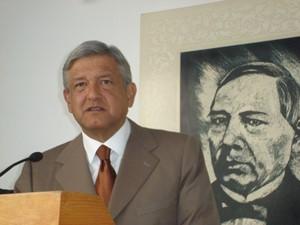Drug treatment and recovery groups are lining up against the measure, which strips drug patients of crucial privacy protections.
Enough is enough, he says.
Arkansas finally issued some cultivation licenses, Maine legislators override a gebernatorial veto to expand medical marijuana, Michigan adds more qualifying conditions, and more.
There will be no marijuana legalization measure on the Arizona ballot this year, a federal judge is sick of sending probationers to jail for marijuana, Amnesty International is set to vote on a new drug policy stance, and more.
North Dakota could see a marijuana legalization initiative on the November ballot, Amnesty International adopts a first-ever position on drug policy, Maine's governor vetoes a medical marijuana expansion bill, and more.
California marijuana arrests plummet post-legalization (duh!), Maine lawmakers slap down a Paul LePage veto and expand medical marijuana, Toronto's chief medical officer calls for drug decriminalization, and more.
An Oklahoma marijuana legalization initiative is in the midst of signature gathering, the DEA announces new regulations aimed at the opioid crisis, Sri Lanka cites the Philippines' "success" as it moves to resume hanging drug offenders, and more.
A bill ostensibly aimed at reducing opioid overdoses passed the House last month, but rather than cheering it on, drug treatment and recovery advocates are lining up to block it in the Senate. That's because instead of being aimed at reducing overdoses, the bill is actually a means of removing patient privacy protections from some of the most vulnerable people with opioid problems, including people using methadone-assisted therapy to control their addictions.

The measure is now before the Senate. (Creative Commons)
And that, advocates say, is likely to increase -- not decrease -- opioid overdoses by pushing users away from drug treatment out of fear the information they reveal could be used against them. The fear is real: Unlike other medical conditions, drug addiction leaves patients open to criminal prosecution, as well as stigmatization and other negative social consequences if their status as drug treatment or maintenance patients is revealed.
This bill, H.R. 6082, the Overdose Prevention and Patient Safety Act, would remove drug treatment patients' ability to control the disclosure of information to health plans, health care providers, and other entities, leaving them with only the lesser privacy protections afforded to all patients under the Health Insurance Portability and Accountability Act (HIPAA) of 1996.
"The confidentiality law is often the only shield between an individual in recovery and the many forms of discrimination that could irreparably damage their lives and future," said Paul Samuels, President/Director of the Legal Action Center. "Unfortunately, there is a very real danger of serious negative consequences for people whose history of substance use disorder is disclosed without their explicit consent."
The Legal Action Center is spearheading the effort to block this bill with the Campaign to Protect Patients' Privacy Rights, which counts more than a hundred organizations, including the American Association for the Treatment of Opioid Dependence, AIDS United, Community Catalyst, Faces and Voices of Recovery, Facing Addiction, Harm Reduction Coalition, National Advocates for Pregnant Women, National Alliance for Medication Assisted Recovery and the, National Council on Alcoholism and Drug Dependence.
The current patient privacy protections, known as 42 C.F.R. Part 2 ("Part 2"), were established more than 40 years ago to ensure that people with a substance use disorder are not made more vulnerable to discriminatory practices and legal consequences as a result of seeking treatment. The rules prevent treatment providers from disclosing information about a patient's substance use treatment without patient consent in most circumstances. The bill's plan to replace Part 2's confidentiality requirements with HIPAA's more relaxed standards would not sufficiently protect people seeking and receiving SUD treatment and could expose patients to great harm, the advocates charge.
"They should call this the Taking Away Protections Act," said Jocelyn Woods, head of the National Alliance for Medication-Assisted Recovery. "People will be afraid to go into treatment. I'm getting emails from people who want to leave treatment before this happens. If I were going into a program and they can't tell me my information will be safe, I would think about turning around and walking out," she said.
"Many of us would not have gone to treatment or accepted services if we thought that our information would have been shared with other entities without our permission. We would not have put our careers, reputation or families at risk of stigma and discrimination if we were not assured that information about our substance use disorder was safe and would only be shared with our consent," added Patty McCarthy Metcalf, executive director of Faces and Voices of Recovery.
The push for the bill is being led by health information software companies and behavioral health providers, such as Hazelden and the Betty Ford Center, and it prioritizes convenience over patient privacy.
"This is because the behavioral health people see complying with the privacy requirements as a pain in the ass," said Woods. "They're going to have to fix their computer systems to block out any treatment program licensed by the federal government -- not just methadone programs -- and they don't want to do that. One of the software companies, Netsmart, complained that they don't want to mess with their programming," she said.
"We need Part 2," Woods continued. "It keeps police out of the program. Without it, police can walk right in. They already sit outside methadone clinics and bust people for DUI on the way out. If this passes, they will walk right in. If the police see anyone they think has a warrant or committed a crime, they're gone."
While the bill has made its way through the House, advocates are hopeful it will stall in the Senate.
"The House pushed this through because they wanted to look like they were doing something and because the behavioral health people were pushing for it," Woods said, "but my sense is that it's moving slowly in the Senate. We have this crazy president, and there's immigration, and the congressional break, and then campaign season. My hope is we can push this past the elections and a blue wave in November will give us a fighting chance."
But the campaign isn't taking any chances and is mobilized to fight on the Hill in the next few months to block the bill. As Mark Parrino, President of the American Association for the Treatment of Opioid Dependence warned: "In the midst of the worst opioid epidemic in our nation's history, we cannot afford to have patients fearful of seeking treatment because they do not have faith that their confidentiality will be protected."
back to top
Last Sunday, leftist politician Andres Manuel López Obrador -- often referred to with the acronymic AMLO -- won the Mexican presidency in a landslide. When he takes office in December, with his party in control of both houses of the Mexican Congress, Mexico's drug policies are likely to see some radical changes.

AMLO in front of picture of his favorite Mexican president, Benito Juarez (Creative Commons)
Just what AMLO does will have significant consequences on both sides of the border. His policies will impact how much heroin and cocaine make it to the streets of America, as well as how many Mexicans flee north to escape prohibition-related violence, and how much drug money flows back into Mexico, corrupting politicians, police, and the military.
That AMLO -- and Mexico -- want change is no surprise. A vigorous campaign against the country's powerful and violent drug trafficking organizations -- the so-called cartels -- unleashed by rightist president Felipe Calderon in 2006 brought the Mexican military into the fight, but instead of defeating the cartels, the campaign, still ongoing under President Enrique Pena Nieto, has instead led to record levels of corruption and violence.
In 2012, when both the U.S. and Mexico had presidential elections and the drug war death toll was around 15,000, Mexico's drug prohibition-related violence was big news north of the border. But in the years since then, as US attention to Mexico's drug wars wavered, it's only gotten worse. Last year, Mexico saw more than 30,000 murders, and the cumulative drug war toll in the past dozen years is more than 200,000 dead and tens of thousands of "disappeared."
But the toll runs deeper than just a count of the casualties. The relentless drug war violence and the endemic corruption of police forces, politicians, and even sectors of the military by cartels have had a deeply corrosive effect on the citizenry and its belief in the ability of the country's political institutions to address the problem.
López Obrador, the former mayor of Mexico City, campaigned heavily on the need for change, especially around drug policy, corruption, and public safety. "Abrazos, no balazos" ("hugs, not gunfights") was one of his favorite campaign slogans. AMLO campaigned cautiously, hammering away at crime, corruption, and violence and mentioning different drug policy-related changes, but not coming out with specific policy proposals. Still, from his own remarks and those of people who will be assuming key positions in his administration, we can begin to sketch an outline of what those policies may look like.
Marijuana Legalization
Mexico is one of the world's largest marijuana producers (although the local industry has been taking a hit in recent years from completion north of the border), it has decriminalized the possession of small amounts of the herb, and it has legalized medical marijuana.
AMLO's pick for interior minister, former Supreme Court official Olga Sánchez Cordero has made no secret of her plans to seek full legalization and said this week that AMLO may seek a public referendum to gauge popular support for it. "Why maintain pot prohibition when Canada and US states are legalizing it, she said. "What are we thinking? Tell me. Killing ourselves. Really, keep on killing when... North America is decriminalizing?"
Drug Legalization
The possession of personal use amounts of all drugs has been decriminalized in Mexico since 2009, but that hasn't stopped the violence. AMLO and his advisors say he is open to considering taking the next step and legalizing all drugs.
"We'll analyze everything and explore all the avenues that will let us achieve peace. I don't rule out anything, not even legalization -- nothing," AMLO told the New Yorker during the campaign.
"The war on drugs has failed," wrote Sánchez Cordero. "Nothing contributes to peace by legislating on the basis of more criminal punishment and permanent confrontation. Violence is not fought with violence, as López Obrador rightly points out."
Drug legalization would be a radical step, indeed. It probably isn't going to happen under AMLO, since that would pit Mexico not only against the US, but also against the international anti-drug treaties that serve as the legal backbone of global drug prohibition. But he is putting the idea squarely on the table.
Amnesty
As a candidate, AMLO floated the idea of amnesty for those involved in the drug trade, a notion that created huge controversy and forced his campaign to clarify that it did not mean cutting deals with bloody-handed cartel leaders or their henchmen. Instead, his campaign clarified, he was referring to peasants growing drug crops and other low-level, nonviolent workers in the illicit business.
"Kidnappers? No," said Sánchez Cordero about possible amnesty recipients. "Who? The people working in rural areas, who are criminals because they work in the illegal drug business, but haven't committed crimes such as murder or kidnapping."

Mexican soldiers have been enlisted to fight the drug war. AMLO wants them to return to the barracks. (Creative Commons)
For the past 12 years, the Mexican military has been called on to fight the cartels and suppress the drug trade. But the level of violence has only increased, the military is implicated in massive human rights violations (as can only be expected when a government resorts to soldiers to do police work), and finds itself subject to the same corrupting influences that have turned state and local police forces into virtual arms of the competing cartels.
With regard to cartel violence, AMLO repeatedly said on the campaign trail that "you don't fight fire with fire" and that what was needed was not soldiers on the streets, but social and economic assistance for the country's poor and unemployed -- to give them options other than going to work for drug gangs. Just this week, AMLO announced a $5 billion package of scholarships and job training support for the young.
Still, AMLO isn't going to send the soldiers back to the barracks immediately. Instead, says one of his security advisors, his goal is to do it over the next three years. He has also proposed replacing the military presence in the drug war with a 300,000-person National Guard, composed of both military and police, a notion that has been bruited by earlier administrations as a means of effectively replacing tainted state and local police participation.
Here, AMLO is not nearly as radical as with some of his other drug policy proposals. He as much as concedes that the bloody drug wars will continue.
"I'm not overwhelmed by any of it," Eric L. Olson, an expert on Mexico and security at the Wilson Center in Washington, told the Washington Post. "It falls well within the norm for what other politicians have been saying."
The US-Mexico Relationship
Over the past couple of Mexican administrations, Mexican security agencies have cooperated closely with their U.S. counterparts in the DEA and FBI. It's not clear whether that level of cooperation will be sustained under AMLO. When he was running for president in 2012, he called for blocking US intelligence work in Mexico, but during this campaign, he insisted he wanted a strong relationship with the US on security and trade issues.
While Mexico may chafe under the continued threats and insults of President Trump, it benefits from security cooperation with the US and would like to see the US do more, especially about the flow of guns south across the border.
"We are going to ask for the cooperation of the United States" on gun trafficking, said Alfonso Durazo, one of AMLO's security advisers, repeating an ongoing refrain from Mexican politicians.
Mexico has also benefited from DEA intelligence that allowed it to kill or capture numerous cartel figures. But AMLO is a much pricklier personality than his predecessor, and between Trump's racist Mexico- and immigrant-bashing and his imposition of tariffs on Mexican exports, US-Mexico relations could be in for a bumpy few years. AMLO's moves on changing drug policies at home are also likely to sustain fire from the White House, further inflaming tensions.
"The bottom line is he's not going to fight the drug war in the way that it's been fought in the last few decades," David Shirk, a professor at the University of San Diego who is an expert on security issues in Mexico told the Post. "That is potentially a huge change."
This article was produced by Drug Reporter, a project of the Independent Media Institute.
back to top
Arkansas finally issued some cultivation licenses, Maine legislators override a gubernatorial veto to expand medical marijuana, Michigan adds more qualifying conditions, and more.
Arkansas
Arkansas Issues Cultivator Licenses. The state Medical Marijuana Commission has awarded cultivation licenses to five medical marijuana businesses. The move comes after an injunction blocking the move was lifted. Another 90 potential medical marijuana businesses were out of luck, but the commission will keep their applications on hand in case one of the five awarded licenses is revoked or if the commission decides to award the three additional licenses it could issue.
Maine
Maine Governor Vetoes Medical Marijuana Expansion Bill. Gov. Paul LePage last Friday vetoed a bill that would have allowed doctors to certify medical marijuana for patients for any reason, as well as revamping the caregiver system and removing some obstacles to obtaining patient cards. The bill will now go back to the legislature for a possible effort to override the veto.
Maine Lawmakers Override Governor's Veto of Medical Marijuana Expansion. The legislature has overwhelmingly overridden Gov. Paul LePage's (R) veto of a bill, L.D. 1539. allowing patients to use marijuana if a doctor deems it medically beneficial, grant six new medical dispensary licenses, permit caregivers to expand their business operations and give the state and municipalities more power to regulate them.
Michigan
Michigan Adds More Qualifying Conditions. The state on Monday added 11 medical conditions, including autism, chronic pain, Parkinson's disease and Tourette's syndrome, to the list of ailments that could qualify a person for a medical marijuana card. That brings the number of qualifying conditions to 22.
Oklahoma
Oklahoma Losers Now Want to "Fix" Medical Marijuana Initiative. Opponents of State Question 788, the medical marijuana initiative approved by voters last month, are now demanding changes in the measure. At a Monday press conference, a coalition of medical groups called for three changes to the initiative: requiring dispensaries to have pharmacists on staff, limiting the number of dispensary licenses, and banning the sale of smokable forms of weed. The state Health Department was meeting Tuesday to vote on proposed rules, but it does not appear the department is going to consider the proposals from the medical coalition.
Oklahoma Approves Emergency Rules for Medical Marijuana, Bans Sale of Smokable Medicine. The state Board of Health on Tuesday approved a proposed draft of emergency rules for the state's new medical marijuana program, but also voted to prohibit the sale of smokable marijuana at dispensaries. Licensed medical marijuana patients could still smoke it if they grew their own.
[For extensive information about the medical marijuana debate, presented in a neutral format, visit MedicalMarijuana.ProCon.org.]
back to top
There will be no marijuana legalization measure on the Arizona ballot this year, a federal judge is sick of sending probationers to jail for marijuana, Amnesty International is set to vote on a new drug policy stance, and more.

Is Philippines President Duterte using the war on drugs to assassinate political foes? Human rights watchers say yes.
Federal Judge Says Enough Already on Punishing Marijuana Users. Brooklyn, New York, US District Court Judge Jack Weinstein said Thursday he has been too hard on marijuana users, and that's going to end. He criticized federal probation officers for demanding sentences of supervised release for people caught with small amounts of marijuana. His comments came in his ruling in a case where a 22-year-old on probation got caught with marijuana. Instead of sending him to jail, Weinstein cut short his probation sentence.
Arizona Legalization Initiative Comes Up Way Short on Signatures. A legalization initiative from Safer Arizona will not be on the November ballot after organizers missed the Thursday deadline to hand in signatures. The group needed 150,000 valid voter signatures to qualify and had planned to gather 225,000 to provide a cushion, but admitted it had only come up with 75,000 raw signatures so far.
International
Amnesty International to Vote on New Positions on Drug Policy. One of the world's leading human rights groups will be debating proposals to tackle the devastating human rights consequences of "misguided attempts" by countries to criminalize and punish people for using drugs. The proposed new policy "would call for a shift away from the current 'scorched-earth' approach of heavy-handed criminalization, to an approach where protection of people's health and rights are at the center." The question will be taken up during the group's Global Assembly later this year.
Report Calls for Coca Leaf to Be Legalized in Colombia. A new report from Open Society Foundations, "Coca Industrialization: A Path To Innovation, Development and Peace In Colombia," calls for coca to be legalized and calls on the Colombian government to guarantee small farmers protection from prosecution, support research into coca's nutritional properties, and promote the use of coca among indigenous communities.
Philippines Rights Group Say Duterte Is Assassinating Political Opponents Under Cover of Drug War. At least ten Filipino mayors have been killed since President Rodrigo Duterte took office in 2016, including two in the past week. Human rights groups said Duterte is using the drug war to crack down on political opponents. The deaths of the mayors strikes fear into the hearts of "politicians, especially in the provinces, who are then forced to toe Duterte's line," said Carlos Conde, Philippines researcher for Human Rights Watch.
back to top
North Dakota could see a marijuana legalization initiative on the November ballot, Amnesty International adopts a first-ever position on drug policy, Maine's governor vetoes a medical marijuana expansion bill, and more.
Marijuana PolicyIndiana Judge Rules First Church of Cannabis Can't Use Marijuana as Sacrament. In a ruling handed down last Friday, Marion County Superior Court Judge Sheryl Lynch rejected the church's argument that Indiana's Religious Freedom Restoration Act (RFRA) allows for a religious exemption from state and federal prohibitions on marijuana. "Permitting exceptions to Indiana's laws prohibiting the sale, possession and use of marijuana for religious exercise would undermine Indiana's ability to enforce anti-marijuana laws at all; anyone charged with violating those laws could simply invoke 'religious; exemption, triggering time-consuming (if not practically impossible) efforts to sort legitimate from illegitimate uses," Lynch wrote in her opinion.
North Dakota Legalization Initiative Hands in Signatures. Backers of a legalization initiative that would remove marijuana from the state's drug schedules handed in some 19,000 raw signatures last Friday, the deadline for signature gathering. The measure needs 13,500 valid voter signatures to appear on the November ballot. The signature cushion looks big enough that it could actually happen.
Medical Marijuana
Maine Governor Vetoes Medical Marijuana Expansion Bill. Gov. Paul LePage last Friday vetoed a bill that would have allowed doctors to certify medical marijuana for patients for any reason, as well as revamping the caregiver system and removing some obstacles to obtaining patient cards. The bill will now go back to the legislature for a possible effort to override the veto.
Michigan Adds More Qualifying Conditions. The state on Monday added 11 medical conditions, including autism, chronic pain, Parkinson's disease and Tourette's syndrome, to the list of ailments that could qualify a person for a medical marijuana card. That brings the number of qualifying conditions to 22.
Drug Policy
Amnesty International Adopts First-Ever Policy on Drugs. Amnesty International has adopted new proposals to tackle the devastating human rights consequences of misguided attempts by countries to criminalize and punish people for using drugs. Representatives voted to adopt what will be the organization's first-ever position on how States should address the challenges posed by drugs from a human rights perspective. The proposed policy calls for a shift away from the current "scorched-earth" approach of heavy-handed criminalization, to an approach where protection of people's health and rights are at the center.
International
Mexico's Next Interior Secretary Will Push for the Legalization of Recreational Marijuana. Incoming Interior Minister Olga Sanchez Cordero has begun to push for the legalization of recreational marijuana and possibly opium poppy cultivation. It's an early move from the Andres Manuel Lopez Obrador (AMLO) administration, which will not take power until December, to make a dramatic break from past Mexican drug war policies.
Caribbean Nations Agree to Consider Marijuana Legalization. The Caribbean Community (CARICOM) has agreed to "review marijuana's current status with a view to reclassification," noting "human and religious rights" issues stemming from criminalization as well as "the economic benefits to be derived" from legalization. The move comes after a lower-level committee recommended replacing marijuana prohibition with regulation.
back to top
California marijuana arrests plummet post-legalization (duh!), Maine lawmakers slap down a Paul LePage veto and expand medical marijuana, Toronto's chief medical officer calls for drug decriminalization, and more.

More of these will be coming soon to Maine after legislators easily overrode a Paul LePage veto. (Creative Commons)
. Arrests for marijuana offenses dropped precipitously following the legalization of marijuana in November 2016. Felony pot arrests dropped 75% between 2016 and 2017, while misdemeanor busts declined from 5,861 in 2016 to 3,979 in 2017. But blacks and Hispanics continued to be arrested at higher rates than whites. Blacks and Hispanics accounted for 61% of felony arrests and 59% of all misdemeanor arrests.
Medical Marijuana
Maine Lawmakers Override Governor's Veto of Medical Marijuana Expansion. The legislature has overwhelmingly overridden Gov. Paul LePage's (R) veto of a bill, L.D. 1539. allowing patients to use marijuana if a doctor deems it medically beneficial, grant six new medical dispensary licenses, permit caregivers to expand their business operations and give the state and municipalities more power to regulate them.
Oklahoma Losers Now Want to "Fix" Medical Marijuana Initiative. Opponents of State Question 788, the medical marijuana initiative approved by voters last month, are now demanding changes in the measure. At a Monday press conference, a coalition of medical groups called for three changes to the initiative: requiring dispensaries to have pharmacists on staff, limiting the number of dispensary licenses, and banning the sale of smokeable forms of weed. The state Health Department was meeting Tuesday to vote on proposed rules, but it does not appear the department is going to consider the proposals from the medical coalition.
International
Toronto's Chief Medical Officer Calls for Drug Decriminalization. Dr. Eileen de Villa, chief medical officer for the city of Toronto, has urged the city's board of health to call on the federal government to decriminalize the possession of all drugs. She is also recommending Ottawa convene a task force made up of people who use drugs, alongside experts in policy, health care, human rights, mental health and criminal justice experts "to explore options for the legal regulation of all drugs in Canada."
British Labor Party Launches Campaign for Drug Policy Reform. The party rolled out its Labor Campaign for Drug Policy Reform on Monday. The campaign will provide a forum for members to discuss British drug policy. The Tory government's current prohibitionist policy "plays into the hands of organized crime," said MP Jeff Smith, who co-chairs the all-party parliamentary group for drug policy reform. "This government's approach is lining the pockets of organized criminals while forcing taxpayers to live with the costs associated with drug abuse and preventing vulnerable users from getting the support they need. This year we've seen progressive drug policies implemented across Europe, and at a local level here in the UK, but now it's time for national leadership on this issue."
back to top
An Oklahoma marijuana legalization initiative is in the midst of signature gathering, the DEA announces new regulations aimed at the opioid crisis, Sri Lanka cites the Philippines' "success" as it moves to resume hanging drug offenders, and more.
Marijuana PolicyOklahoma Legalization Initiative Has a Month Left to Meet Signature Requirement. A marijuana legalization initiative, State Question 797, has until August 8 to gather enough signatures to qualify for the November ballot. Organizers need 123,724 valid voter signatures to qualify, and have gathered more than 80,000 in two months of canvassing. To have a safe cushion, organizers need to roughly double their signature count in the remaining weeks.
Medical Marijuana
Arkansas Issues Cultivator Licenses. The state Medical Marijuana Commission has awarded cultivation licenses to five medical marijuana businesses. The move comes after an injunction blocking the move was lifted. Another 90 potential medical marijuana businesses were out of luck, but the commission will keep their applications on hand in case one of the five awarded licenses is revoked or if the commission decides to award the three additional licenses it could issue.
Oklahoma Approves Emergency Rules for Medical Marijuana, Bans Sale of Smokable Medicine. The state Board of Health on Tuesday approved a proposed draft of emergency rules for the state's new medical marijuana program, but also voted to prohibit the sale of smokable marijuana at dispensaries. Licensed medical marijuana patients could still smoke it if they grew their own.
Heroin and Prescription Opioids
Department of Justice Announces Regulatory Steps to Address Opioid Epidemic. The Department of Justice announced new guidelines that it says will enable the DEA to clamp down on diversion of prescription opioids. The announcement doesn't address whether patients who need the drugs for pain will still be able to get them:
"The Department of Justice today announced the finalization of an April proposal to improve the Drug Enforcement Administration's ability to control the diversion of dangerous drugs in the midst of the national opioid crisis. Announced in April by Attorney General Jeff Sessions, the final rule sent for publication today in the Federal Register establishes that DEA will take into consideration the extent that a drug is diverted for abuse when it sets its annual opioid production limits," the DEA said in a press release Tuesday. "If DEA believes that that a particular opioid or a particular company's opioids are being diverted for misuse, this allows DEA to reduce the amount that can be produced in a given year. These revised limits will encourage vigilance on the part of opioid manufacturers, help DEA respond to the changing drug threat environment, and protect the American people from potentially addictive drugs while ensuring that the country has enough opioids for genuine medical, scientific, research and industrial needs."
International
Philippines Wants to Drug Test All High School, College Students. In what is actually a retreat from an earlier proposal to require mandatory drug testing for students as young as elementary school, the Philippines DEA is now proposing the mandatory drug testing of all high school and college students. But the move would require a change of law. Current Philippines law only allows for random -- not universal -- drug testing of students.
Sri Lanka to Begin Hanging Drug Dealers. President Maithripala Sirisena told his cabinet Wednesday he was "ready to sign the death warrants" of repeat drug offenders. "From now on, we will hang drug offenders without commuting their death sentences," he said. While the death penalty for drugs remains on the books in Sri Lanka, no one has been executed for a drug offense since 1976. The government said it would try to replicate the "success" of hardline drug policies in the Philippines.
back to top







